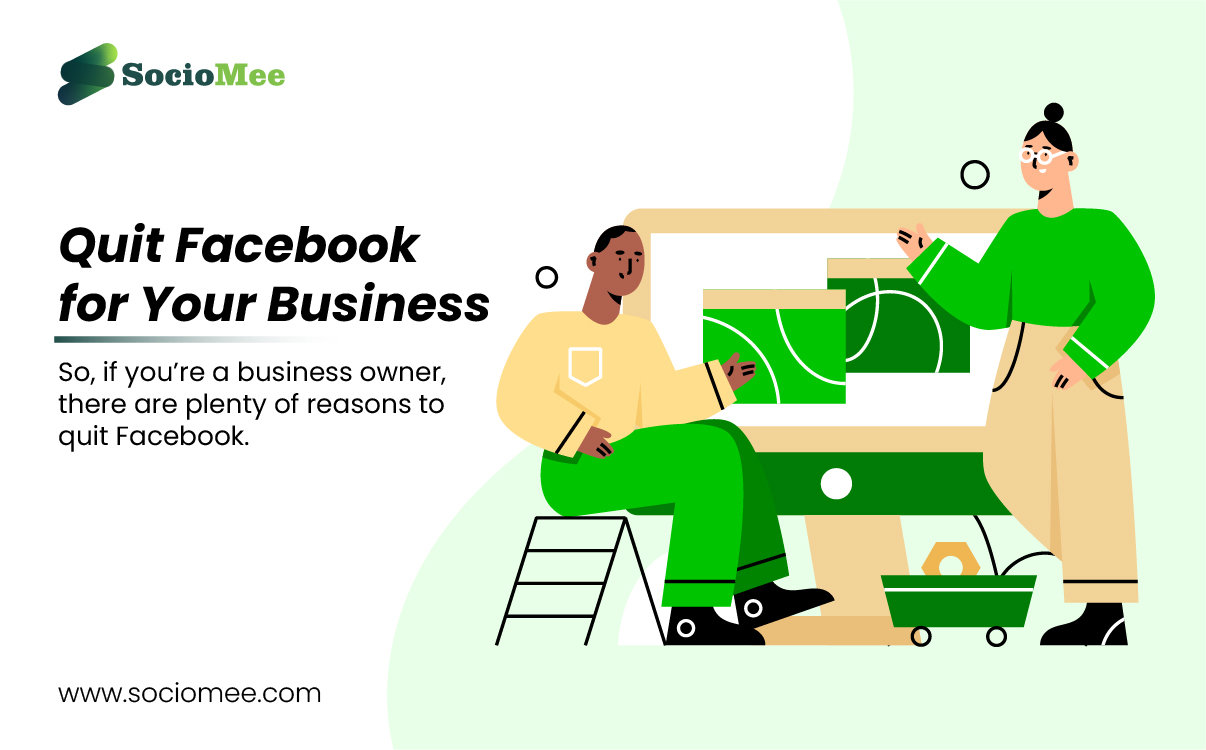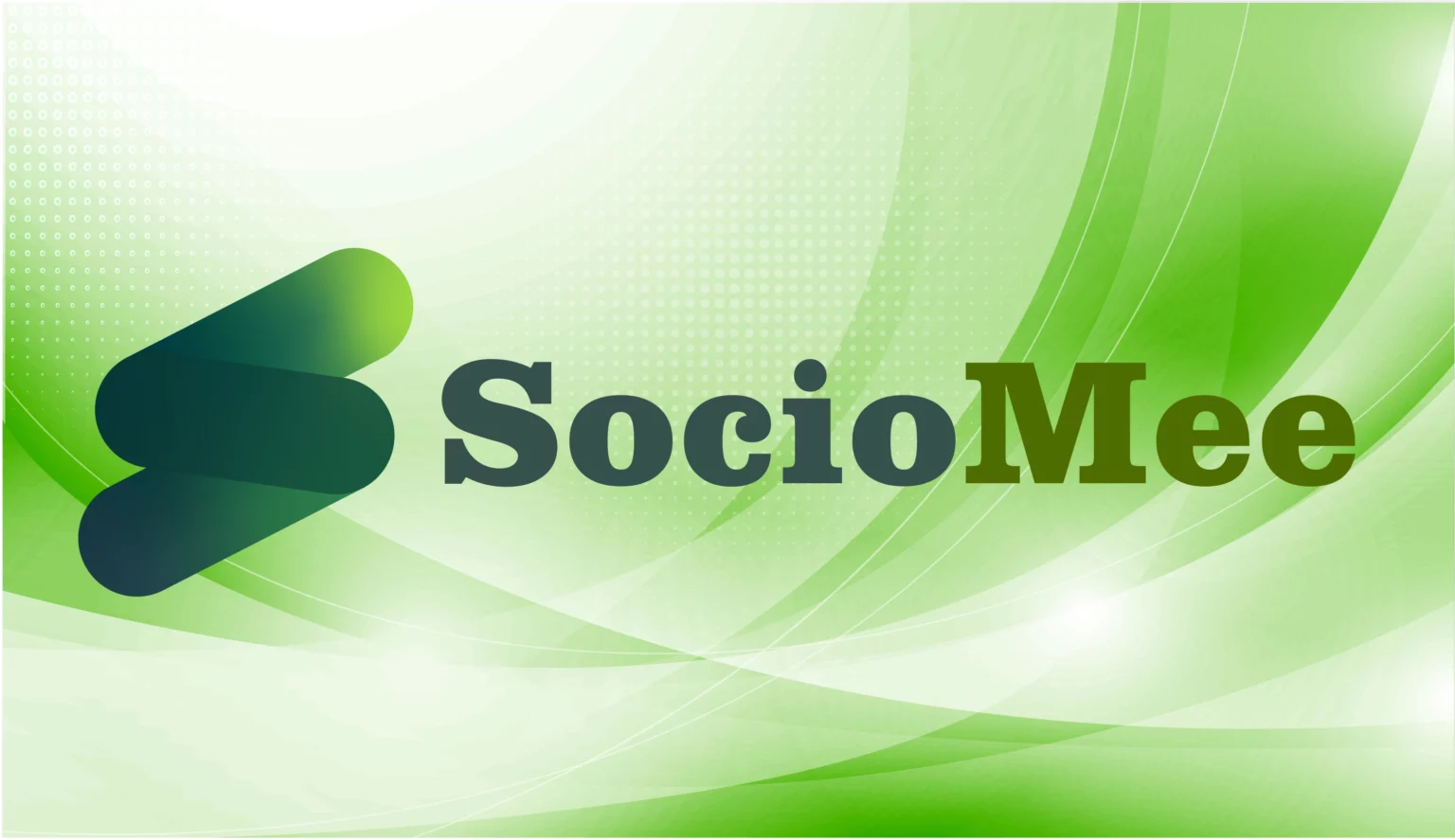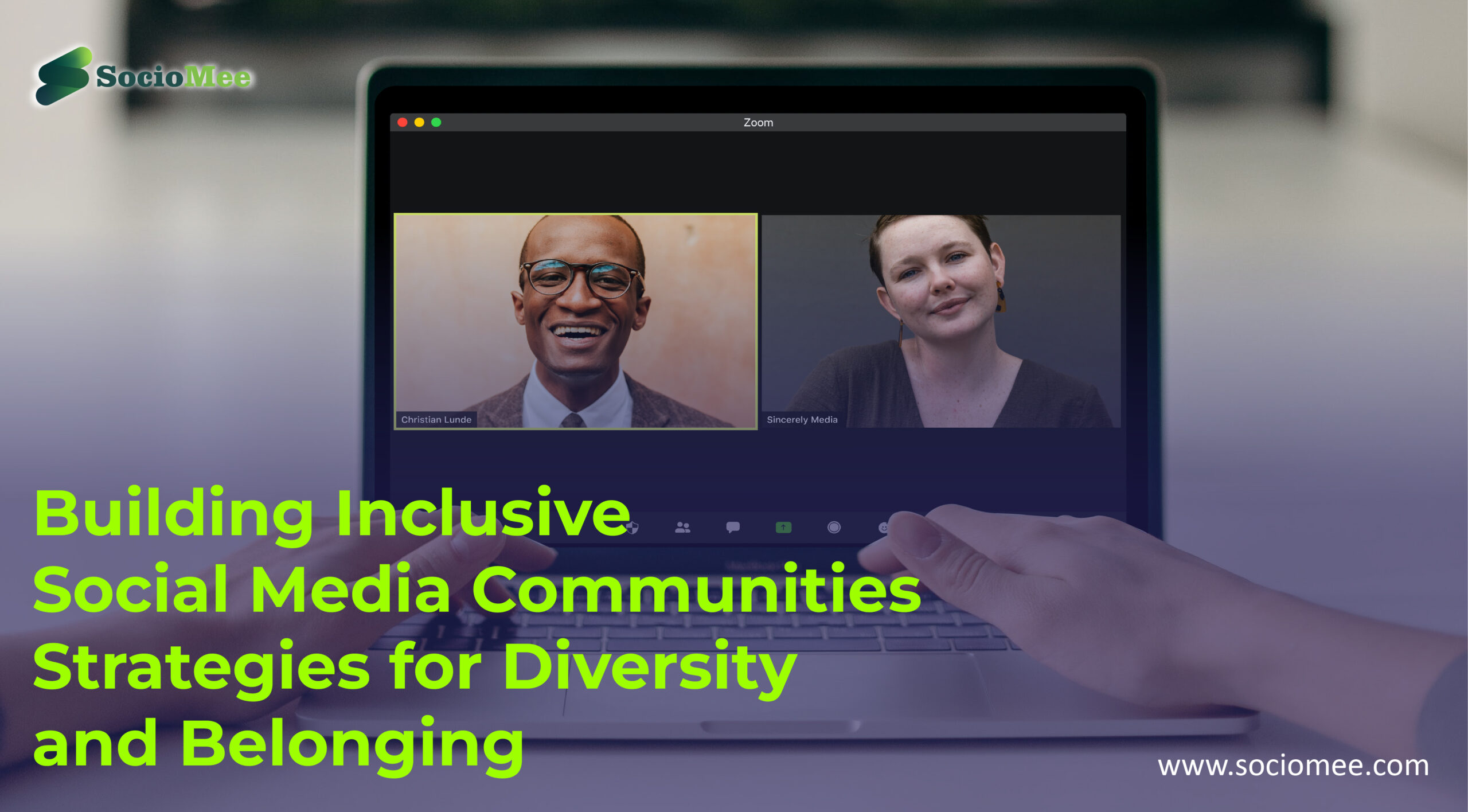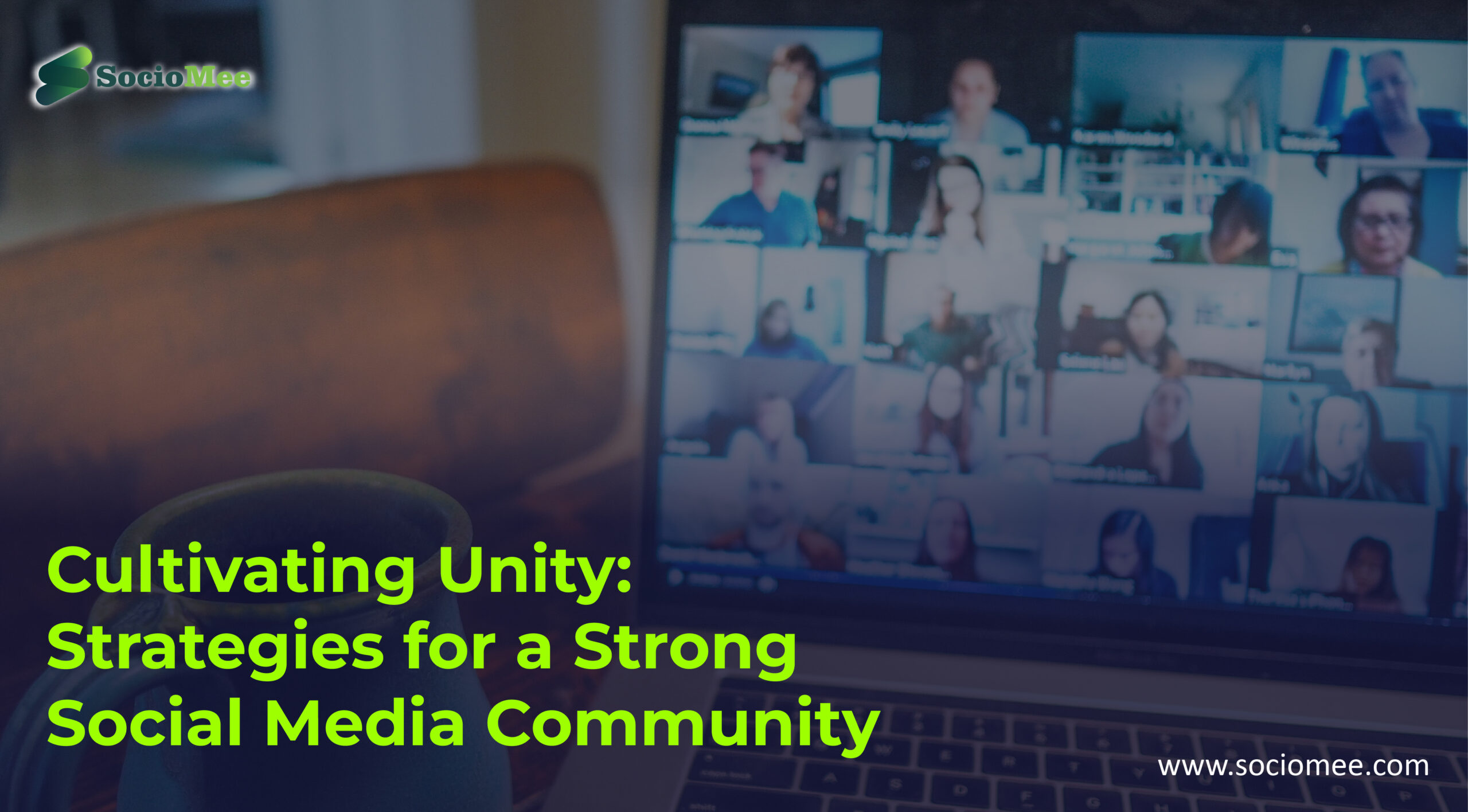If you’re a business owner, there are plenty of reasons to quit Facebook. For one, Facebook sucks. It’s easy to get lost in the scroll, especially when you’re supposed to be working. Additionally, Facebook is full of distractions. You can click on links, read articles, and watch videos, all of which take you away from your work. But there are other, more serious reasons to quit Facebook as a business owner. For one, Facebook is a privacy nightmare.
The social media giant has been embroiled in scandal after scandal, and it’s only getting worse. Facebook doesn’t care about your privacy, and it’s only a matter of time before they screw up again. Additionally, Facebook is a terrible platform for marketing. The algorithm is constantly changing, which makes it difficult to reach your target audience. And even when you do reach them, there’s no guarantee they’ll see your post. It’s a waste of time and money to try to market on Facebook.
So, if you’re a business owner, there are plenty of reasons to quit Facebook. It’s a time suck, a privacy nightmare, and a terrible platform for marketing.
Do yourself a favor and delete your Facebook account today.
#1. Facebook is a time waster:
Facebook is a social networking site that allows users to connect with friends and family all over the world. It’s a great way to stay in touch with loved ones, but it can also be a huge time waster. If you find yourself spending hours on Facebook, it’s important to remember that there are other things in life that are important, too.
Make sure you’re not neglecting your work, school, or family obligations in favor of Facebook. It’s also important to be aware of the potential negative consequences of spending too much time on Facebook. Studies have shown that people who spend a lot of time on social media sites are more likely to be depressed and anxious. So if you find yourself feeling down after spending time on Facebook, it’s important to take a break.
If you’re worried that Facebook is taking over your life, there are a few things you can do to cut back on your usage. limit the amount of time you spend on the site each day, and try to only use it for specific purposes, like staying in touch with friends and family.
You can also unfollow people or groups that tend to suck you into spending more time on the site than you’d like.
#2. Facebook is a procrastination tool:
We all know that Facebook is a loiter. It’s a place where people go to waste their time. But what if I told you that Facebook is actually becoming a waste for the people?
Yes, you heard that right. Facebook is becoming a waste for the people. The social media giant has become a breeding ground for fake news, clickbait, and other forms of content that are designed to waste your time. And it’s not just the content that’s a problem. The way Facebook is designed, it encourages you to waste your time. The algorithm is designed to show you content that keeps you engaged, even if it’s not necessarily something you want to see. And it’s not just your time that Facebook is wasting.
It’s also wasting your attention. When you’re scrolling through your newsfeed, you’re not really paying attention to anything. You’re just quickly consuming content without really thinking about it. This is a problem because it means you’re not really processing the information you’re seeing. You’re not learning anything new or gaining any valuable insights. Worst of all, it’s preventing you from connecting with the people you care about. Facebook is supposed to be a platform for connecting with friends and family. But because of the way it’s designed, it’s actually making it harder for people to connect. Think about it. When was the last time you had a meaningful conversation with someone on Facebook? Chances are, it’s been a while.
The reason is that Facebook is designed for quick, superficial interactions. It’s not conducive to deep, meaningful conversations. So if you’re looking for a way to connect with the people you care about, you’re better off doing it offline. Pick up the phone or meet up in person.
And if you’re looking for a way to waste your time, there are better options than Facebook.
#3. Facebook can negatively impact your productivity:
While Facebook can be a great way to stay connected with friends and family, it can also be a huge time waster. If you find yourself spending hours scrolling through your newsfeed, it’s time to take a break. There are a few ways that Facebook can negatively impact your productivity.
First, it can be a huge time suck. If you’re spending hours on Facebook, you’re not getting work done. Second, it can be distracting. If you’re trying to focus on a task and you keep getting notifications from Facebook, it’s going to be hard to stay on track.
If you find that Facebook is impacting your productivity, it’s important to take a break. Step away from the computer and take some time to focus on what’s important. You’ll be glad you did.
#4. Facebook can negatively impact your real-life social interactions:
Facebook has been linked to a number of negative social outcomes, including decreased face-to-face communication, decreased satisfaction with life, envy, and isolation. A study published in the journal Computers in Human Behavior found that Facebook use can lead to decreased face-to-face communication, which in turn can lead to a decrease in satisfaction with life. The study found that the more time people spend on Facebook, the less satisfied they feel with their lives.
Another study, published in the journal Cyberpsychology, Behavior, and Social Networking, found that Facebook use can lead to feelings of envy. The study found that people who spend more time on Facebook are more likely to feel envy towards others. The study also found that people who are more active on Facebook are more likely to feel isolated from their offline social networks.
These studies suggest that Facebook can have a negative impact on your social life. If you find yourself spending more time on Facebook than you are interacting with people in real life, it may be time to cut back.
Connect with new world
#5. Facebook can make you feel isolated from the real world.
Facebook is a popular social networking site that allows users to connect with friends and family online. However, some users find that Facebook can make them feel isolated from the real world. When you use Facebook, you may only see the positive aspects of your friends’ lives, such as their happy relationship statuses and recent vacations.
This can make you feel like you are missing out on important aspects of your own life. In addition, you may only interact with your friends through social media, which can make you feel more isolated from the real world. If you find that Facebook is making you feel isolated, there are a few things you can do. First, try to limit the amount of time you spend on the site. Second, reach out to your friends and family members in person or through other channels, such as phone calls or text messages.
Finally, remember that everyone’s life is different and that you should focus on your own happiness.
#6. Facebook can make you more prone to envy and jealousy:
Envy and jealousy are two emotions that can be triggered by comparing ourselves to others. Social media, and Facebook in particular, can be a breeding ground for these emotions. When we scroll through our newsfeeds and see our friends and acquaintances living their best lives, it’s only natural to compare ourselves to them. We might start to feel like we’re not good enough, or that we don’t have enough.
This can lead to feelings of envy and jealousy. Of course, it’s important to remember that we only see the highlight reel of people’s lives on social media. Everyone has their own struggles and challenges, even if they don’t share them online. If you find yourself feeling jealous or envious after using Facebook, try to take a step back and remember that what you see isn’t always the whole story.
Focus on your own life and what you have to be grateful for.
#7. Facebook can be a major source of stress:
Facebook can be a major source of stress for a lot of people. For some, it’s the never-ending stream of updates and notifications. For others, it’s the constant comparison to other people’s “perfect” lives. And for others still, it’s the fear of missing out on something important. But whatever the reason, there’s no denying that Facebook can be a major source of stress for a lot of us.
So what can you do about it?
- First, try to be aware of how much time you’re spending on Facebook. If you find yourself scrolling through your newsfeed for hours on end, it’s time to cut back. Limit yourself to checking Facebook a few times a day, and set a timer if you need to.
- Second, try to be mindful of what you’re looking at on Facebook. If you find yourself getting jealous or stressed out by other people’s posts, it’s time to take a break. Unfollow or hide certain people or groups if you need to.
- And finally, remember that Facebook is not reality. People only post the best parts of their lives on social media, so don’t compare your real life to someone else’s highlight reel.
If you can keep these things in mind, you can minimize the amount of stress that Facebook causes in your life.
#8. Facebook can be a major security risk:
Most people are aware of the potential risks of sharing too much personal information on social networking sites like Facebook. But what many users don’t realize is that Facebook is also a major security risk to their personal data. According to a recent report from the security firm Symantec, Facebook is one of the top 10 most dangerous websites when it comes to data security.
The report found that Facebook users are three times more likely to encounter phishing attacks than users of other social networking sites. Phishing attacks are a type of online fraud where criminals attempt to trick users into revealing personal information like passwords or credit card numbers.
They do this by sending fake emails or messages that appear to be from a legitimate source, such as Facebook. Symantec’s report found that Facebook phishing attacks have increased by 250% over the past year. And it’s not just Facebook users who are at risk. The report found that criminals are also targeting users of other social networking sites, such as Twitter and LinkedIn.
The best way to protect yourself from these attacks is to be aware of them and to never reveal personal information to anyone unless you are absolutely sure that they are who they say they are.
If you receive a suspicious message or email, do not click on any links or attachments. Instead, contact the company or person that it appears to be from to verify that it is legitimate.
#9. Facebook is an enormous energy drainer:
Facebook is an enormous energy drainer. The site sucks up so much power that it has been blamed for causing blackouts in some areas.
A study by the University of California, San Diego found that the site uses up to 1.5% of the world’s electricity. That’s the equivalent of the annual energy use of the country of Chile. The study also found that if Facebook were a country, it would be the fifth largest energy user in the world. So why is Facebook such an energy hog? The site has to keep track of a lot of data for each user, and that takes a lot of power. Facebook also uses a lot of energy to keep its servers running and to keep the site up and running. All of this energy use has a big impact on the environment.
Facebook’s carbon footprint is estimated to be about 2.5 million metric tons per year. That’s the equivalent of the annual emissions of about 500,000 cars. If you’re concerned about the environment, you may want to think twice before using Facebook.
The site is a huge energy drain, and that has a big impact on the planet.
#10. Facebook Doesn't Share Data With Businesses:
Facebook is one of the most popular social networking platforms with over 2 billion monthly active users. While many businesses use Facebook to connect with customers and promote their products or services, some are concerned about the social media giant’s handling of user data. In the wake of the Cambridge Analytica scandal, in which it was revealed that the data of 87 million Facebook users was improperly accessed by a political consulting firm, some businesses are rethinking their relationship with the platform.
Facebook has been clear that it does not sell user data to businesses, but some are still concerned about how the platform uses data for advertising purposes. If you’re a business owner who is considering using Facebook to connect with customers, it’s important to understand how the platform collects and uses data.
#11. The Organic Reach of Businesses on Facebook Is Decreasing:
The average organic reach for business pages on Facebook is now down to 6.4%. This is a significant decrease from 2012, when organic reach was at 16%. The decrease is largely due to the algorithm changes that Facebook has made over the years.
There are a few factors that have contributed to the decrease in organic reach. The first is that Facebook is now a publicly traded company and is therefore under pressure to increase profits. One way to do this is to show more ads in the News Feed. This decreases the amount of space available for organic content from businesses.
Another factor is that Facebook wants people to interact more with each other, and less with businesses. This is because interactions between people are what keep people coming back to the site. Therefore, the algorithm now favors content that is more likely to generate interactions, such as posts from friends and family. Businesses can still reach their audience on Facebook, but it is now more important than ever to create content that is engaging and will encourage people to interact with it. Paid advertising is also an option, but it is important to remember that organic reach is still possible and should not be ignored.
#12. Facebook Is Bad for Customer Support:
Facebook is a popular social networking site that allows users to connect with friends and family online. However, Facebook is not a good platform for customer support. When customers have a problem with a company, they often turn to social media to reach out to the company for help. But because Facebook is a public platform, companies are often reluctant to provide customer support on Facebook. This is because they don’t want to air their dirty laundry in public.
Additionally, Facebook is not an effective platform for customer support because it is not easy to search for previous conversations or customer service interactions. This can make it difficult for companies to keep track of customer issues and provide the appropriate support. Finally, Facebook’s messaging system is not designed for customer support. It is difficult to transfer conversations to other channels, such as phone or email, which makes it hard for companies to provide the comprehensive support that customers need.
For these reasons, Facebook is not a good platform for customer support.
#13. Facebook can be a trigger for anxiety disorders:
Anxiety disorders are the most common mental illness in Europe, affecting 40 million adults. And while there are many different types of anxiety disorders, one of the most common triggers is Facebook. For people with anxiety disorders, Facebook can be a trigger because it amplifies the fear of missing out (FOMO). FOMO is the feeling of anxiety that comes from thinking you are missing out on something important, like a party or a fun event. People with anxiety disorders often turn to Facebook to see what other people are doing, which can make them feel worse.
They may see their friends posting about fun events and feel like they are missing out. Or, they may see people who seem to be doing better than them, which can trigger feelings of insecurity and anxiety. If you have an anxiety disorder, you may want to consider limiting your time on Facebook, or even taking a break from it altogether. If you find that Facebook is making your anxiety worse, talk to your doctor or a mental health professional.
They can help you develop a plan to manage your anxiety and help you reduce your time on Facebook.
#14. Facebook can be a source of comparison:
When you scroll through your Facebook feed, you might see friends who seem to be living their best lives. They might be posting about their new job, their upcoming vacation, or their new car. This can lead to feelings of comparison and envy.
It’s important to remember that people tend to share the good parts of their lives on social media, and not the bad. So don’t compare your behind-the-scenes to someone else’s highlight reel. If you’re finding that Facebook is making you feel bad about yourself, take a break from it. Unfollow or unfriend people who make you feel bad, and focus on connecting with people who make you feel good.
You can also try using Facebook in a different way, such as using it to connect with old friends or to learn about new things.
Connect with new social community
#15. Facebook is not a good platform for SEO:
If you’re looking to improve your website’s search engine optimization (SEO), you might be tempted to turn to Facebook. After all, it’s the largest social media platform in the world, with billions of active users. Surely that must mean it’s a powerful tool for SEO, right? Wrong. In fact, Facebook is one of the worst platforms you can use for SEO. Here’s why:
- Facebook’s algorithm is designed to show users content that is relevant to them, not content that is optimised for search engines. This means that even if you do manage to get your content in front of a Facebook user, there’s no guarantee they’ll see it.
- Facebook is a closed platform, which means that its users are not able to search for content outside of the platform. This means that even if your content is optimised for search engines, it’s unlikely that Facebook users will ever find it.
- Facebook’s EdgeRank algorithm further reduces the visibility of content from brands and businesses, as it is designed to prioritise content from friends and family over content from businesses.
So, if you’re serious about improving your website’s SEO, you’re better off focusing your efforts on other platforms, such as Google.
#16. You can't track ROI on Facebook:
There is no denying that Facebook is one of the most powerful marketing tools available today. With over 1.5 billion active users, it provides businesses with a massive potential audience. However, one of the biggest criticisms of Facebook is that it is difficult to track ROI. Unlike other marketing channels such as pay-per-click advertising or email marketing, there is no easy way to track how much revenue is generated from Facebook.
This can make it difficult to justify the time and money spent on Facebook marketing. However, there are some indirect ways to measure the ROI of Facebook marketing. For example, you can track the number of leads or sales generated from your Facebook page. You can also track the engagement rate of your posts, which can give you an indication of how well your content is performing.
Ultimately, it is important to remember that Facebook should be just one part of your overall marketing strategy. While it may be difficult to track ROI, it can still be a valuable channel for building brand awareness and generating leads.
#17. Facebook ads are expensive and not very effective:
Many businesses are turning to Facebook ads in order to reach more customers, but are finding that the ads are expensive and not very effective. In some cases, businesses are spending more on Facebook ads than they are on traditional advertising, but not seeing the same results.
There are a number of reasons why Facebook ads may not be as effective as other forms of advertising.
- First, Facebook users are typically not in the mindset of shopping or looking for products when they are using the site.
- Second, Facebook ads are often not targeted to the right audience, resulting in a low click-through rate.
- Finally, Facebook ads may be placed on pages that have very little traffic, making it difficult to reach potential customers.
If you are considering using Facebook ads for your business, it is important to weigh the costs and benefits carefully. In some cases, Facebook ads may be a worthwhile investment, but in other cases, traditional advertising may be a better option.
#18. You're wasting valuable resources by investing in Facebook:
Facebook is a popular social networking site that allows users to connect with friends and family online. However, many businesses are wasting valuable resources by investing in Facebook. Businesses should be aware that Facebook is not an effective platform for marketing or advertising.
In fact, a recent study by the social media research firm eMarketer found that Facebook users are actually less likely to click on ads than users of other social networking sites. Additionally, Facebook is not a good platform for driving traffic to your website. The vast majority of Facebook users never click on external links, and those who do click are less likely to convert into customers or clients. If you’re a business owner, you should focus your resources on more effective marketing and advertising platforms.
You’ll get a better return on investment by investing in search engine optimization, pay-per-click advertising, or traditional advertising methods.
#19. Facebook's algorithm suppresses content from businesses:
There are a number of reasons why Facebook’s algorithm suppresses content from businesses. The most likely reason is that Facebook wants users to see content from their friends and family first, and content from businesses second. This is because Facebook knows that users are more likely to interact with content from people they know, and less likely to interact with content from businesses.
Another reason why Facebook suppresses content from businesses is because it wants to encourage businesses to pay for advertising. By suppressing content from businesses, Facebook is able to drive up advertising rates, as businesses will be willing to pay more to reach their target audiences.
Finally, it’s also possible that Facebook simply doesn’t think that content from businesses is as interesting or valuable as content from individuals. This is why Facebook is constantly tweaking its algorithm, in order to surface the best and most interesting content for its users.
#20. Facebook Tracks Other App and Website Usage:
Facebook has been caught tracking users’ activity on other apps and websites. The social media giant has been doing this for years, and it’s only now that the extent of this tracking is being revealed. This tracking is done through Facebook’s login system.
Whenever you see a “Login with Facebook” button on a website or app, that’s an indication that Facebook is tracking your activity on that site or app. Even if you’re not logged in to Facebook, the company is still able to track your activity.
This is because many websites and apps use Facebook’s login system, which gives Facebook access to your activity on those websites and apps. Facebook uses this information for a variety of purposes, including targeted advertising. The company has denied that it sells this information to advertisers, but it’s clear that this information is valuable to advertisers. This tracking is a violation of users’ privacy, and it’s yet another example of Facebook’s disregard for users’ privacy.
The company has been embroiled in a number of privacy scandals in recent years, and this latest revelation is sure to add to the calls for regulation of the social media giant.
Impact your reputation
Facebook has become a place where personal images are being shared nowadays. This has impacted the professional lives of individuals and hence you should quit facebook. You are not here to just post your horse party pictures but even more than that. Perhaps if you do so then you are damaging your professional life.
Anything posted on the Internet is there forever, even after you delete it (unless someone screenshots it first). So keep that in mind when posting photos from your latest vacation or sharing funny memes with friends.
Facebook is not teaching you something valuable
You must ask yourself what are you learning from facebook? Well, in our opinion you will get a true answer to this. Is it something valuable you get to see or learn as soon as you open it? Well, if not then it is not worth connecting with facebook. Therefore do be a time waster. You are here to learn something new and shape your career and if you are not getting something valuable with facebook then quite it now.
Facebook encourage superficial relationship
It might be the case that you have 100 friends and others may have 200. Now you must be thinking that you have a low friend count. Hence, this can encourage a superficial relationship and it tends to burst out. But remember facebook is not sharing you the real stat as out of 200 friends your other connection has, but how many are real. This can create stress and even some people undergo disturbance.
Facebook making you negative
With privacy issues, violations and unwanted content, facebook is the source of you being negative. You might not understand this now, but if you keep on using facebook then you will be at risk. Therefore upon research the majority of the people agreed that yes facebook is making them negative and there has been a change in their thoughts.
Facebook is not same as offline
Facebook has diminished the way we used to live in real life. The platform has made an ease between how people used to live in real life. With addiction, they have come up on social channels and in turn their entire lives run on it. We do not think this should be life as it is making us away from real life.
Conclusion
In conclusion, if you are using Facebook for your business, you should consider quitting. There are a number of reasons why this may be the best decision for you and your business. First, Facebook is constantly changing, and it can be difficult to keep up with the latest algorithm changes. Second, Facebook reach is declining, which means that fewer people are seeing your content. Finally, Facebook ads are becoming increasingly expensive, and it is hard to justify the cost when there are other, cheaper, and more effective alternatives.









